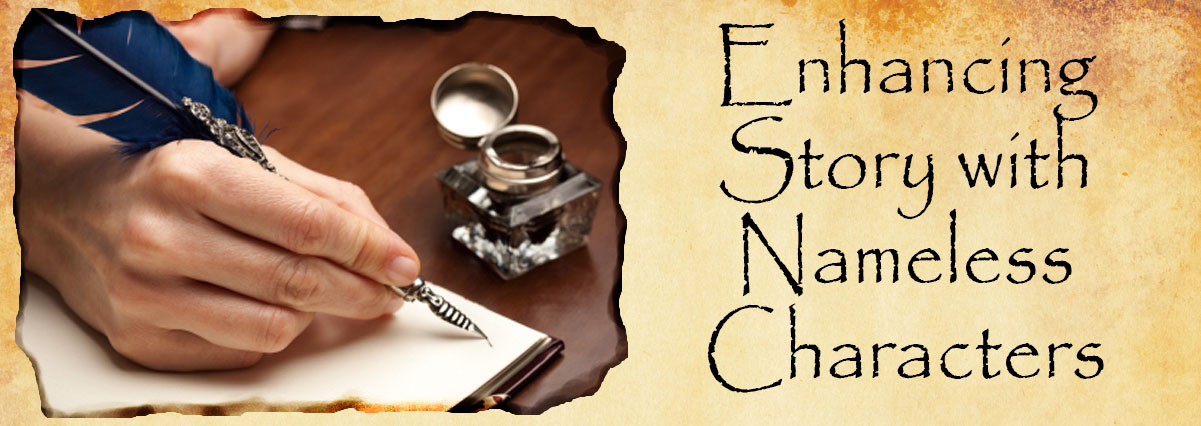How nameless characters enhance story
Nameless characters. They may seem useless to the writer and to the reader but in many respects they are key to enhancing a great fiction story. Consider how many nameless characters populate the books you read and the movies you watch. Nameless characters play well into plot development and world building.
When I am writing a story I take into consideration the environment I am throwing my main characters into. What are the sights, the sounds, the smells. I want to engage the senses so that the reader experiences the story in a profound way. But a great part of creating the environment is the establishment of nameless characters.
Let’s use the example of John, a character who is feeling lost. If you want to convey that John is starting to feel panicky you could throw in a nameless character. Crowds are milling about, heading down the busy sidewalks. Someone bumps into John. He reaches down and finds his wallet is now missing. He franticly searches the sea of faces for the pickpocket but instead his gaze is arrested by a pretty face. She stands a short distance off, smiles, then disappears in the throng moving around him. Someone steps on his foot, mutters an apology, and several other people jostle him. A pistol presses against his back.
In this short example the only characters able to affect John are nameless ones. The advantage of this is that the reader now does not feel the need to know these other characters. Instead they want to know how John is going to react to these nameless characters and the situation in general. The nameless characters have revealed a deeper level to the story and left the mind imagining what could be the motives and purposes of these nameless characters. All the while, John remains the focus.
Nameless characters add mystery and, when written well, they will enhance the traits of the main characters by causing them to react to different circumstances. While it is true that you can effect much of the same with named characters, nameless characters provide less distraction to the reader, thus allowing more focus on moments of suspense and interior dilemma.
A story is incomplete without nameless characters. In my novels I greatly enjoy creating background characters who are not assigned names. Why? Because later I can return to those characters, perhaps fleshing out their own unique stories for later projects. For example, when writing a series of fantasy novels a nameless character might be the bartender or the stable hand. Later in the series I can revisit the character, assign them a name, give them a more significant part in the series’ plot, and reference back to that moment in the story when they were nameless. To the reader it seems as if the author knew all of these facts about the nameless character all along. But truly it is often not the case.
The author might make reference to how the story’s hero/heroine glimpsed something happening to a common soldier during a battle. Then at a later point you reference back to that and make a new and insignificant background character come to life by relationally tying them to the original nameless character. Their deed then matters to the reader on an emotional level.
As you see, there are many uses for nameless characters in fiction.
Q: What sorts of nameless characters to you find interesting in fiction?

